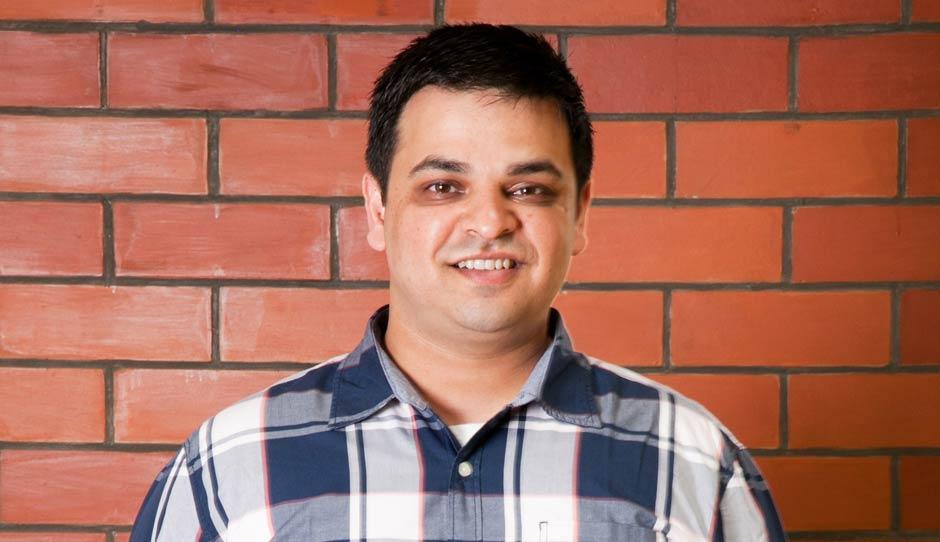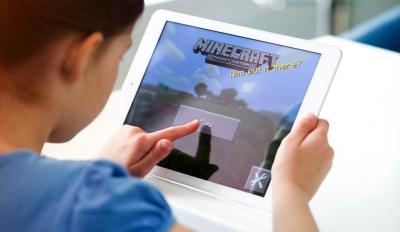Vivek Prabhakar on Chumbak's Magnetic Success
- BY Ira Swasti
 In Blog
In Blog 18597
18597 0
0

In 2002, travel enthusiasts Vivek Prabhakar and Shubhra Chadda realised that India doesn’t have a lot to offer in terms of fun souvenirs. Every time they came back from their trips abroad, the married couple had a bevy of whacky fridge magnets to gift to friends and family but when in India, they could only find traditional handicrafts or textiles to take as souvenir gifts. The idea to start their own business was always there but it wasn’t until 2010 that they actually started Chumbak (magnets), a company that would sell kitschy, pop Indian souvenirs. They started out making only fridge magnets. In the four years since, Chumbak has grown to become a 150-people firm with several product ranges—pens, posters, boxer shorts and laptop bags. What they haven’t lost is the quirky, irreverent take on the symbols and ideas that define Indian-ness. Today, they retail across 100 stores in India and 60 stores in Japan and claim to have a sales growth of 250 per cent year on year. Prabhakar pins the brand’s magnetism to its knack of knowing what their customers want.
I start my day quite early at about 6.30am every day. Shubhra, my wife and the co-founder of Chumbak, and I have a six-year old daughter who goes to school. So, our routine is pretty set. My wife does an hour of yoga which she has been practicing for the past 15 years and I get half an hour of general exercise every morning. After getting our daughter ready for school, we both drive to office together around 8:45am.
Our office is an interesting workplace. Last year, we shifted to a new building which used to be an abandoned plywood factory spread over two acres in the Nimbaikaypura suburb of Bangalore. We used the old factory’s warehousing area to store and package our products now. Shubhra and I make sure we keep a close eye on our warehouse because that gives us better control over logistics. We can also monitor the quality and delivery schedule of our products if we’re close by. Our company office—a low-roofed, two-floor glass and brick cube—is actually located within the warehouse. Because it is on the mezzanine floor, the 6,000 square feet office looks like a design studio with the vibrant blues and yellows we have used for paint. We even have a couple of organic gardens, mango trees and coconut trees on our office premises. The outdoors is my favourite place in the office, and I usually take all my phone calls there.
We normally start the work week with a meeting at 9am on Monday. On the rest of the weekdays, we begin by 9.30am. Most people are in by that time but we have given our team the flexibility to choose their own working styles. There are some people who like to start work late and work till late while others who like to be in the office by 8:30am and leave by 5pm.
In a dynamic, young company, you don’t even have the luxury to argue with your team members for too long.
Shubhra and I have clearly defined roles in the company. While I look after sales, finance, logistics and warehousing, Shubhra heads product and design. When we first started the company, it was very tough getting used to working together. We are very different people, especially when it comes to the way we work. And, suddenly we were spending 24 hours together! We didn’t know how to draw the line between a fight at home, and a disagreement in office so we would be constantly bickering over something or the other. With time, we’ve learnt to pick our battles. I know her strengths are my weaknesses and my weaknesses are her strengths. There are some tasks in the office that we both love doing and we make sure we do them together such as working on product design. Then, if Shubhra is fighting hard for something, I know it’s important to her and I let it go. She does the same when I feel passionately about something. Honestly, in a dynamic, young company, you don’t even have the luxury to argue or linger on fights with your team members for too long, especially when that person is your co-founder! Moreover, as the team has grown, we spend much less time together at work.
You can read about how TrulyMadly's other social media offering #BreakingStereotypes fared, here.
Today, Chumbak products are sold in about 100 stores across India and 60 stores in Japan. We entered Japan in 2012 when Japanese retailer Amina Collections saw our magnets collection on our website and wanted to sell them in Japan. They said there’s a big market for well-designed products in Japan and tested them in 10 of their stores. Our products were a great hit because the market loved the vibrant colours, the art and design. A Japanese person doesn’t see an autorickshaw T-shirt the way Indians do because they might never have seen an autorickshaw in their life. They are attracted to the design, not the symbolism. Thanks to the great response, Amina decided to sell our products to large design stores in Japan such as Village Vanguard. We’re now available in 60 stores across Japan and sell our products under our own brand name.
Shubhra and I had actually planned to have Chumbak branded stores after a year or two of starting the company but we soon realised retail operations need a lot of capital. It made more sense for a company like ours to get a distribution system in place first. We opened our first own branded store in June 2013, a little more than three years after we started the company. The biggest challenge with your own store is to find the right location. For our first five stores, it was difficult to get mall owners to take us seriously. Our sheer persistence helped us overcome that. We followed up with mall owners aggressively but it was eventually because of the uniqueness of our products that they gave in. Today, we have about 18 company-owned branded stores across India.
While I am in charge of sales, finance and warehousing, what I enjoy most is getting feedback from our customers. I go to a Chumbak store once or twice a week. Nine times out of ten, I don’t introduce myself to the customers. I personally try and sell at least one of our products to a customer. It’s thrilling to see the smile your product can put on a customers’ face. Apart from store visits, I have our company’s email id hooked to my account so that I can answer the angry or critical emails that come from our customers about an issue in quality or availability. In fact, customer service is something everybody gets into at Chumbak. It’s not just Shubhra and I who go through the inbound emails from customers. People in sales, logistics and production go through them as well so they know the broad issues our customers are facing. Usually, the solution to the problem a customer is facing isn’t restricted to one department. It requires coordination from all departments, and we’ve found that when everyone knows what the issue is, problems get resolved faster. It also reduces the blame game.
 Stacked Up On Fun: Vivek loves playing salesman for the "thrill of seeing the smile a product can bring to a customer's face.
Stacked Up On Fun: Vivek loves playing salesman for the "thrill of seeing the smile a product can bring to a customer's face. Actually, the one thing Shubhra and I are really proud about is that as a company, we’re not scared of admitting we did something wrong. If we made a mistake, we prefer to say it upfront to the customer. From the word go, we’ve consciously tried to build that culture. We encourage people to make mistakes but if someone makes a mistake, we don’t like to waste a lot of time and effort on dwelling what went wrong. I’d rather focus on what went right for the company. So if the sales in a particular store are going up, I want to know why that is happening so that we can replicate it. Thinking about what went wrong often brings down morale in the team and then people become afraid of making mistakes.
The culture of a company is set by making sure the founders and the first couple of people they hire set examples for others to follow. We have a fairly relaxed environment in the office. I am a flexible manager. I don’t like to be a nitpicker hovering over people’s desks to check if they are working or not. I prefer to be a problem solver who people can come to whenever they need help. Our setup is quite non-hierarchical and we have lunch together at about 1:30pm in a common lunch area.
We don’t have formal review sessions for our team mates. We believe feedback is a two way process. By that I mean, a 21-year-old in his first job at Chumbak has the freedom to come up to me or Shubhra and give us feedback. Whenever I have to give individual feedback to someone, I make sure I don’t do it in front of the whole team. We let our new hires know about what’s done and what’s not done in our office on the first day of their onboarding process. It helps them to grasp the company culture faster.
I still interview some of the people we hire at Chumbak and when I am hiring, I always ask two questions that help me understand the person and his or her motivations much better. One is, if your money is taken care of, what’s the one job you’d do for free? I’ve found the most creative, random answers to this question. Someone once told me they would want to play cricket for India. One person said he wanted to work in Cuba, another wanted to build lego structures with his children and one of our finance guys said he would want to do farming in his village. These answers help me understand people’s passions. The next question is why aren’t you doing that right now? The other approach we use during the hiring process is to have people from other departments interview somebody who has applied for a position in a totally different department. For instance, an applicant for a position in finance will be interviewed by somebody from our design team. This part of the interview may or may not have a bearing on the person’s eventual hiring but it helps us gauge the person’s personality fit.
Even though we don’t have a policy dictating so, about 80 per cent of the Chumbak staff visits our stores on weekends to get customer feedback on their own.
Just last week, thanks to a visit like that, our marketing team discovered that some customers would walk into our stores and ask to redeem their online gift certificates. It was an issue that no one in our sales team had anticipated and the person in the store had no idea how to handle the request. All our gift certificates are actually only redeemable online. The customer had walked off by the time the store manager could do anything about their request. So now we have devised a process wherein the certificates can be redeemed offline as well. This feedback may have never come up in a customer complaint online.Like most entrepreneurs, I look more for attitude than skill when hiring. That has always paid off in terms of the energy level and drive people bring to the office. When new stores open, 10-12 people from Chumbak are always there—doing this and that to get the store up and running. It’s during those times that we spot people’s strength like figuring out that the accounts guy is actually a great salesman. In fact, even though we don’t have a policy dictating so, about 80 per cent of the Chumbak staff visits our stores on weekends to get customer feedback on their own. We usually talk about that in our Monday morning meetings. Getting to know what we can do differently and what the customer is looking for is golden information that you can’t get anywhere except talking to your customers in the store.
Even though our teams take customer feedback on weekends, our office (except the warehouse team) is officially open only for five days. We may end up on the phone on one or two Saturdays a month, but that’s about it. I believe that people need those two days to spend time with their families and relax so we don’t stress on working on weekends. I sometimes have to work with our warehouse teams on Saturdays but Sundays are strictly off work.
On weekdays, I switch off work around 6-6.30pm. Back home, I spend time with my daughter, have dinner and then from 11pm to 12.30, I spend most of the time thinking ahead. These are random thoughts that I know I can use in the future, not necessarily about the next day or the next week. I’ll be reading stuff and trying to put my thoughts together. That’s probably when I am the most productive during the day. Working at Chumbak is killer fun because I get to see such great designs come to life every day. Even though we’ve been around for four years now, every morning I go to work, I think what the company will be three or five years from now and I don’t need anything else to keep me motivated.





























Add new comment